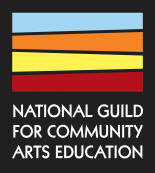Practice. This single word brings many emotions to a musician: expectation, hope, frustration, dread.
Practice means to perform, over and over again
In the face of all obstacles,
Some art of vision, of faith, of desire.
Practice is a means of inviting the perfection desired.
~ Martha Graham
Practice is necessary to musical progress, but can be cumbersome if approached without a strategy. Five faculty members at Cumberland Valley School of Music share tips and techniques to make the most out of each practice session.
Michael Cameron, cello instructor
- Practice about as often as you bathe.
- Listen to recordings.
- PLAY ALONG with recordings.
- If you are working towards a performance, play your music WITHOUT WARMING UP. You will get a very accurate sense of how you will sound in concert if you do so.
- DON’T always start at Measure 1.
Richard Overcash, voice instructor
- Practice to memorize a piece of music. Practice properly the rhythms, notes, dynamics, phrasing demands, and words (if vocal) so that the piece is remembered in its entirety (proper practice makes perfect). To make it your own; when performed no one else present at the concert can do that particular piece as you will do it.
- Learn to manage the breath through the whole piece. Breathe a deep breath, filling the lungs as the diaphragm drops (as much as 3″) and then resist as the waistline to control the slow gradual rise of the diaphragm. Divide the piece into phrases, practicing each phrase separately, three or four times each, and then put all the phrases together remembering the breath energy needed for the successful performance of each phrase in its setting within the entire piece.
- Isolate problem spots in the piece (circle measures), and start with these at the beginning of each practice session (practice smart, not hard).
Tim Gotwald, flute instructor
- Low before high, soft before loud, long before short, slow before fast, easy before hard.
- Big things are made up of many little things. Get the little things right and the big thing will be much easier.
- Scales are your friends.
- The metronome is your friend.
- The tuner is your friend.
Susan Matson, Suzuki piano instructor
- Only practice on the days that you eat.
- Make practice about purposefully working towards specific musical goals, not about clock-watching (putting in the requested/required amount of time…although this is important).
- Be “mentally present” as you practice. (It is not a good thing when a student says, “I did that without thinking about it!”)
Elisabeth Turchi, voice instructor
- Practice, practice, practice – good days or bad days. You’ll have to perform on both, so practice on both!
- Approach a song like you would eating an elephant – one piece at a time. Break a large song into small pieces as you learn it and digest it!
- Listen to recordings of professional performers – know your history and common performance practices. Some recordings will also demonstrate what NOT to do. So listen carefully.
- Know your story – Who is your character? What are you singing about and why?
- Always come back to the basics – breathing, posture, scales, and arpeggios. Every song is built on them!
Mark Miller, guitar instructor
- A little bit every day is much better than cramming the day of, or the day before a lesson
- Spend half of your practice time on review.
- Take trouble spots out of the piece and practice them separately.
- Establish a routine. Make practicing a habit.
- Practice where distractions are at a minimum.
As you approach your next practice session, select 1 or 2 tips to utilize during the session. Perhaps it will be your most efficient practice session to date!



